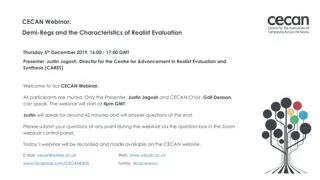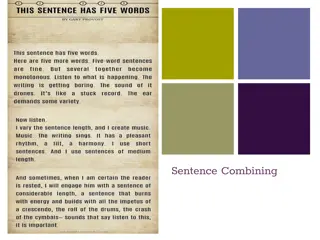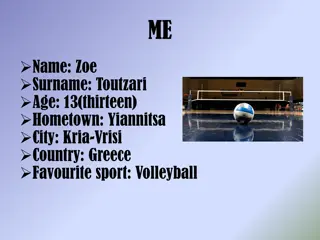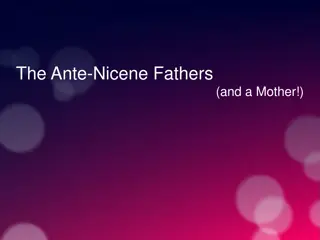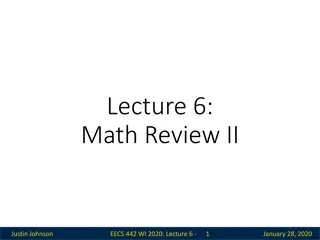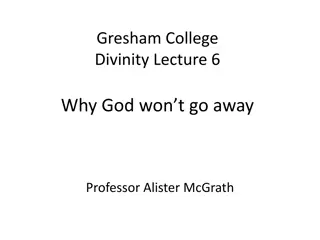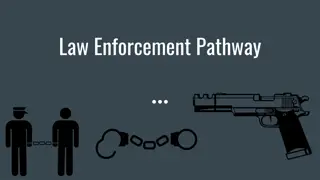justin_finkelstein1
rerhe werhkje hfkjsdhusdfdsfhdf ds sdkfhdu fhdsf dsf dshfuidsyfdbsdf dhfuid hfd
Download Presentation

Please find below an Image/Link to download the presentation.
The content on the website is provided AS IS for your information and personal use only. It may not be sold, licensed, or shared on other websites without obtaining consent from the author.If you encounter any issues during the download, it is possible that the publisher has removed the file from their server.
You are allowed to download the files provided on this website for personal or commercial use, subject to the condition that they are used lawfully. All files are the property of their respective owners.
The content on the website is provided AS IS for your information and personal use only. It may not be sold, licensed, or shared on other websites without obtaining consent from the author.
E N D
Presentation Transcript
A HISTORY INSTITUTEFOR TEACHERS TEACHING ABOUT ISRAEL AND PALESTINE HOTEL PALOMAR, 117 S 17TH ST, PHILADELPHIA, PA 19103 OCTOBER 25-26, 2014
Palestinian and Israeli Public Opinion on Solutions to the Arab-Israeli Conflict Justin Finkelstein October 26, 2014 Presented for the Foreign Policy Research Institute (FPRI) History Institute for Teachers on Teaching about Israel and Palestine
Overview 1) The Joint Israeli Palestinian Poll 2) Palestinians a) Polls that support the findings of Joint Poll b) Polls that complicate the findings of the Joint Poll c) Palestinians: Conclusions 3) Israelis a) Polls that support the findings of the Joint Poll b) Polls that complicate the findings of the Joint Poll c) Israelis: Conclusions 4) Conclusions: Israeli and Palestinian Public Opinion
What is meant by Israeli and Palestinian Public Opinion ? Representative samples (approximately 500 or more) of both Israelis and Palestinians Who are Israelis? About 8.1 to 8.9 million Jews, Muslims, Druze, Christians and others who are Israeli citizens 75% Jewish, 20% Muslim, 5% other Who are Palestinians? About 4 to 4.5 million Muslims, Christians and others who live in the West Bank and Gaza Strip 97% Muslim, 3% Christian
1) The Joint Israeli Palestinian Poll Conducted jointly by the Harry S. Truman Research Institute for the Advancement of Peace at The Hebrew University of Jerusalem and the Palestinian Center for Policy and Survey Research (PSR) in Ramallah Comprehensive poll conducted each December/January since 2003 Other joint polls also periodically conducted, and other polls sometimes conducted independently by PSR Presents six main elements of a two-state solution to the conflict in the spirit of the Clinton Parameters and Geneva Initiative
#1: Borders The entirety of the West Bank and Gaza Strip would make up Palestine, with exception of 3% of the West Bank, with proportional land swaps to make up for this
#2: Refugees Solution based on UN Resolutions 194 and 242. Palestinian refugees to be given 5 options for permanent residency: a) Palestinian state b) Areas transferred from Israel to Palestine c) Current country of residence (subject to that country s discretion) d) A third country (subject to that country s discretion) e) Israel(subject to Israel s discretion, but Israel will consider the average number of refugees admitted to third countries ) All refugees would receive compensation
#3: Jerusalem East Jerusalem capital of Palestine, with Arab neighborhoods falling under Palestinian sovereignty and Jewish neighborhoods under Israeli sovereignty All of Old City and Haram al-Sharif (Temple Mount) to Palestine except for Jewish Quarter and Wailing Wall plaza; those areas and West Jerusalem will be capital of Israel
#4: Demilitarized Palestinian State Palestine would have no army, but a strong security force and multinational forces to ensure its safety and security Both Israel and Palestine would be committed to ending all violence against each other
#5: Security Arrangements Palestine to have sovereignty over its land, water and airspace Israel would have right to use Palestinian airspace for training purposes Israel would maintain two security stations in the West Bank for 15 years Multinational force would monitor borders and implementation of agreement by both sides
#6: End of Conflict Upon full implementation of agreement: 1. Conflict will be declared over by both sides 2. Mutual recognition of each state as the homeland of its respective peoples
Review: The 6 Parts of the Joint Polls Peace Plan Borders: The entirety of the West Bank and Gaza Strip would make up Palestine, with exception of 3% of the West Bank with proportional land swaps to make up for this Refugees: Solution based on UN Resolutions 194 and 242. Palestinian refugees to be given 5 options for permanent residency: a) Palestinian state b) areas transferred from Israel to Palestine c) current country of residence d) a third country e) Israel. All refugees would receive compensation. Jerusalem: East Jerusalem capital of Palestine, with Arab neighborhoods falling under Palestinian sovereignty and Jewish neighborhoods under Israeli sovereignty. All of Old City and Haram al-Sharif to Palestine except for Jewish Quarter and Wailing Wall. That and West Jerusalem will be capital of Israel. Demilitarized Palestinian State: Palestine would have no army, but a strong security force and multinational forces to ensure its safety and security. Both Israel and Palestine would be committed to ending all violence against one another. Security Arrangements: Palestine to have sovereignty over its land, water and airspace; Israel would have right to use airspace for training purposes; Israel would maintain two security stations in the West Bank for 15 years. Multinational force would monitor borders and implementation of agreement by both sides End of Conflict: Upon full implementation of agreement, conflict will be declared over by both sides, which would recognize each state as the homeland of its peoples. 1) 2) 3) 4) 5) 6)
Joint Joint Poll Results: 2003 Poll Results: 2003- -2013 2013 Dec. 03 Dec. 04 Dec. 05 Dec. 06 Dec. 07 Dec. 08 Dec. 09 Dec. 10 Dec. 11 Dec. 12 Dec. 13 AVG I S R Overall package 47% 64% 64% 52% 53% 52% 46% 52% 58% 56% 54% 54.36% P A L 39% 54% 46% 48% 47% 41% 38% 40% 50% 43% 46% 44.73%
Summary Table: 2003-2013 - Breakdown Dec 03 04 05 47% 55% 53% 44% 46% 46% 47% 49% 51% 46% 44% Dec Dec Dec 06 Dec 07 Dec 08 Aug 09 Dec 10 Dec 11 Dec 12 Dec 13 1) Borders and Territorial Exchange ISR PAL ISR PAL ISR PAL ISR 57% 63% 55% 61% 56% 54% 49% 49% 63% 53% 52% 35% 44% 43% 38% 44% 40% 36% 36% 42% 42% 39% 25% 46% 40% 41% 39% 40% 37% 41% 45% 41% 46% 41% 39% 38% 38% 36% 40% 34% 38% 38% 38% 37% 46% 44% 33% 39% 36% 36% 31% 36% 40% 29% 32% 61% 68% 69% 62% 61% 64% 56% 62% 67% 70% 60% 2) Refugees 3) Jerusalem 4) Demilitarized State 5) Security Arrangements 6) End of Conflict PAL ISR PAL ISR PAL 36% 27% 20% 28% 23% 27% 24% 24% 32% 28% 28% 50% 61% 62% 51% 53% 56% 49% 52% 63% 59% 52% 23% 53% 43% 42% 51% 35% 34% 38% 50% 46% 52% 66% 76% 80% 68% 66% 67% 68% 68% 70% 68% 66% 42% 69% 64% 62% 66% 55% 55% 58% 63% 59% 63%
Latest Polls from PSR and The Hebrew University 100 % Support for Two-State Solution 90 80 70 60 50 40 30 20 10 0 Palestinians (Sept. 25-27, 2014) Israelis (June 8-15, 2014)
Arab Peace Initiative, 2002 Arab recognition of and normalization of relations with Israel after it ends its occupation of Arab territories occupied in 1967 (2013: with minor swaps) and after the establishment of a Palestinian state. Israeli retreat from all territories occupied in 1967 including Gaza, the West Bank, Jerusalem and the Golan Heights, and the establishment of a Palestinian state. Refugee problem will be resolved through negotiations in a just and agreed upon manner and in accordance with UN resolution 194. In return, all Arab states will recognize Israel and its right to secure borders, will sign peace treaties with Israel and establish normal diplomatic relations.
API: Support over past several years Israelis: 20%-35% Joint poll conducted June 8-15, 2014: 29% support, 64% oppose Palestinians: 47%-65% Joint poll conducted June 5-7, 2014: 50% support, 46% oppose
Joint Poll: What about a One-state Solution, in Which Arabs and Jews Enjoy Equality? Palestinians: Approximately 25% to 30% support Latest poll of Palestinians from September 2014 found 26.7% support and 71% oppose a one-state solution Israelis: Approximately 25% to 32% support Latest poll of Israelis from June 2013 poll surveyed 32% in support of one-state solution
2) Palestinians: Polls that Corroborate the Findings of PSR/Joint Polls
Palestinian-run Jerusalem Media and Communications Center (JMCC) poll from April 2014 (has not conducted poll since): Some believe that a two-state formula is the favored solution for the Arab-Israeli conflict, while others believe that historic Palestine cannot be divided and thus the favored solution is a bi-national state on all of Palestine where Palestinians and Israelis enjoy equal representation and rights. Which of these solutions do you prefer? Total (1200) West Bank (750) Gaza (450) Two-state solution: a Palestinian and an Israeli state 48.7% 45.2% 54.4% Binational state on all historic Palestine 18.8% 23.9% 10.2% Palestinian State* 15.3% 13.9% 17.8% Islamic State* 1.0% 1.2% 0.7% Others 1.6% 0.8% 2.9% No Solution 11.8% 11.9% 11.8% I don t know/no answer 2.8% 3.1% 2.2% *These answers were not included as part of the options read to interviewees
Ramallah-based Arab World for Research and Development (AWRAD) poll, May 2014 (most recent that deals with two-state solution) West Bank Gaza Total Do you support the principle of a two-state solution with a Palestinian state living side-by-side in peace with Israel? Support 57.5% 52.0% 55.4% Oppose 38.8% 46.9% 41.8% Don t know 3.7% 1.1% 2.8%
Al-Najah University Poll, Sept. 11-13, 2014 Do you support the two-state solution provided that a Palestinian state is created to live side by side with Israel? Total West Bank Gaza Strip I strongly support 14.6% 11.7% 19.6% I support 41.8% 46.0% 34.6% I reject 23.9% 27.1% 18.4% I strongly reject 14.9% 13.4% 17.6% No opinion/I do not know 4.7% 1.7% 9.8% Total 100.0% 100.0% 100.0%
Same Al-Najah Poll Sept. 11-13, 2014: Do you support or reject a one-state solution in which Palestinians and Israelis enjoy equal rights? Total West Bank Gaza Strip I strongly support 7.5% 4.3% 13.0% I support 18.8% 18.1% 20.0% I reject 42.1% 50.2% 28.0% I strongly reject 26.2% 25.5% 27.4% No opinion/I do not know 5.4% 1.9% 11.6% Total 100.0% 100.0% 100.0%
Poll Commissioned by the Brookings Institution November 2013 Presented almost the same peace agreement as in Joint Poll, with notable exception that Palestinians would recognize Israel as a state of the Jewish people and of all its citizens. Conducted by Palestinian Center for Public Opinion (PCPO) Only 30% positively viewed one state scenario in which Israelis and Palestinians live in equality
Palestinians: Polls that Complicate the Findings of PSR
Washington Institute for Near East Policy (WINEP) poll, June 15-17, 2014 Please state your view about the main Palestinian national goal for the next five years The goal should be to work toward reclaiming all of historic Palestine from the river to the sea The goal should be to end the occupation of the West Bank and Gaza to achieve a two-state solution The goal should be to work for a one-state solution in all of the land: a state in which Arabs and Jews will have equal rights in one country, from the river to the sea No opinion/don t know Total West Bank Gaza Strip 60.3% 55.4% 68.4% 27.3% 30.6% 21.8% 10.1% 11.2% 8.2% 2.3% 2.8% 1.6%
The Israel Project (TIP)/Greenberg Quinlan Rosner/PCPO poll, 2011
Majority of Palestinians Favor One Palestinian State over the Entire Land:
But Majority also Supported Obamas Framework for a Two-State Solution U.S. President Barack Obama recently announced principles that should be a foundation for any peace negotiations between Israel and the Palestinians. He said the border between Israel and Palestine should be based on the 1967 lines with mutually-agreed swaps of land to take account of realities on the ground so both sides can achieve a secure and just peace. Would you favor or oppose a two-state solution with these borders? 100 90 80 70 60 50 40 30 20 10 0 Support (5% Strongly Support) Oppose (5% Strongly Oppose)
PSR Post-Gaza War Poll, Aug. 26-30 In elections, Ismail Haniyeh would defeat Mahmoud Abbas, 61% to 32% 46% would vote for Hamas, 31% for Fatah 72% favors the transfer of Hamas armed approach to the West Bank
Voting: Abbas vs. Haniyeh 100 Abbas Haniyeh dk/na/no opinion 90 80 70 60 50 40 30 20 10 0 Sept. 30-Oct. 2, 2010 Dec. 3-5, 2008 May 21-23, 2009 Dec. 10-12, 2009 Dec. 16-18, 2010 Dec. 15-17, 2011 Dec. 13-15, 2012 Dec. 19-22, 2013 Sept. 15-17, 2011 Sept. 13-15, 2012 Sept. 25-27, 2014 March 5-7, 2009 March 4-6, 2010 March 17-19, 2011 March 15-17, 2012 March 28-30, 2013 March 20-22, 2014 Sept. 19-21, 2013 June 5-7, 2008 June 5-7, 2014 Aug. 28-30, 2008 Aug. 13-15, 2009 June 10-13, 2010 June 16-18, 2011 June 21-23, 2012 June 13-15, 2013 Aug. 26-30, 2014
Voting: Fatah vs. Hamas 100 Fatah Hamas 90 80 70 60 50 40 30 20 10 0 Aug. 13-15 2009 Dec. 3-5, 2008 May 21-23, 2009 Dec. 10-12, 2009 Dec. 16-18, 2010 Dec. 13-15, 2012 Dec. 19-22, 2013 Aug. 28-30, 2008 Sept. 15-17, 2011 Dec. 15-17, 2011 Sept. 13-15, 2012 Sept. 19-21, 2013 Sept. 25-27, 2014 Sept. 30-Oct. 2, 2010 March 5-7, 2009 March 4-6, 2010 March 17-19, 2011 March 15-17, 2012 March 28-30, 2013 March 20-22, 2014 June 5-7, 2008 June 5-7, 2014 June 10-13, 2010 June 16-18, 2011 June 21-23, 2012 June 13-15, 2013 Aug. 26-30, 2014
Palestinian Public Opinion: Conclusions Theory: There is a difference between what one wants and what one is willing to accept 2 types of questions: What do you want? Do you agree with/support ? Palestinians want one Palestinian state over the entire land and would like to work toward that goal, yet they are also agreeable to a two-state solution even one that would leave Israel with a strong Jewish majority
3) Israelis: Polls that Corroborate the Findings of The Hebrew University
Washington D.C.-based S. Daniel Abraham Center for Middle East Peace: Polls of Israelis commissioned 2003 to 2012
Poll Commissioned by the Brookings Institution, November 2013 Midgam Project (Israeli firm) conducted Only 21% positively viewed one state scenario in which Israelis and Palestinians live in equality
Tel Aviv-based Institute for National Security Studies (INSS) poll, January 2014 Found about half of Israeli public in favor of a two-state solution similar to (slightly less far-reaching) the Clinton Parameters/Geneva Initiative: Support 51% Oppose 24% Indecisive 25%
INSS: Israeli Support for Establishment of Palestinian State in the Context of a Permanent Peace Agreement
Geneva Initiative-commissioned Poll Conducted by New Wave Research, mid-September 2014 Poll presented the Geneva Initiative two-state peace plan 100 90 80 70 60 50 40 30 20 10 0 Support (38%)+highly support (8%) Oppose (20%)+highly oppose (13%) Still debating the matter (14%) Do not have a clear opinion (6%)
Israeli Dialog Poll June 9-11, 2014 If the prime minister were to reach an agreement that included the establishment of a Palestinian state alongside Israel, would you support a peace agreement? 100 90 80 70 60 50 40 30 20 10 0 Support - 60% Oppose - 32% Don't know - 8%
Israelis: Polls That Complicate the Findings of The Hebrew University
Israeli Dialog Poll June 9-11, 2014 If the [peace] agreement meant that most of the settlers would be annexed to Israel, Jerusalem would be divided, the refugees would not return to Israel and there would be strict security arrangements, would you support such an agreement? Support Oppose Don t know 35% 58% 7%
Same Poll, Again: Of the following possibilities, which solution is best for Israel in the long run? 1) One state between the Jordan River and the Sea in which all citizens have equal rights, including the right to vote for the Knesset (Israeli parliament) 10% 2) Don t know 3) One state between the Jordan River and the sea, but with limited rights for Palestinians 4) Continuation of the present situation 14% 23% 25% 5) A peace agreement that includes a partition of the land, a partition of Jerusalem, removal of settlements, and no return of refugees to Israel 28%
Israel Democracy Institute (IDI) Poll July 2013 If Israel and the Palestinians reach an understanding and a permanent peace agreement that includes security arrangements for Israel, a demilitarized Palestinian state, international guarantees, and declaration of the end of the conflict by the Palestinians, in return for this peace agreement, would you support or not support each of the following? Proposal % Support 1) Withdrawal to the 1967 lines with territorial swaps 38.4% 2) Transfer of Arab neighborhoods of Jerusalem to the Palestinian Authority and a special arrangement for the holy places 43.9% 3) An evacuation of settlements except for Ariel, Maaleh Adumim, and the settlement blocs 44.3% 4) Israeli recognition in principle of the right of return, permitting the return of a small number of Palestinian refugees and financial compensation for others 28.4%
Poll conducted by Geocartography Institute (Israel), January 2013 Do you support or oppose the concept that the establishment of two states is the solution to the conflict with the Palestinians? Support: 40% Oppose: 45% No reply: 14%


